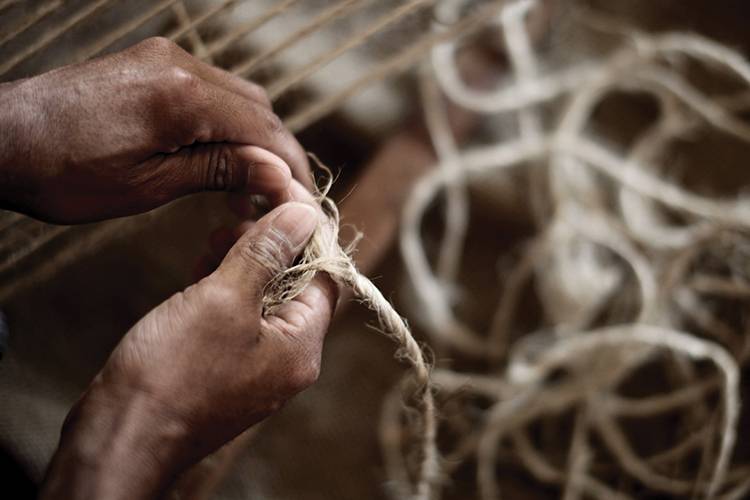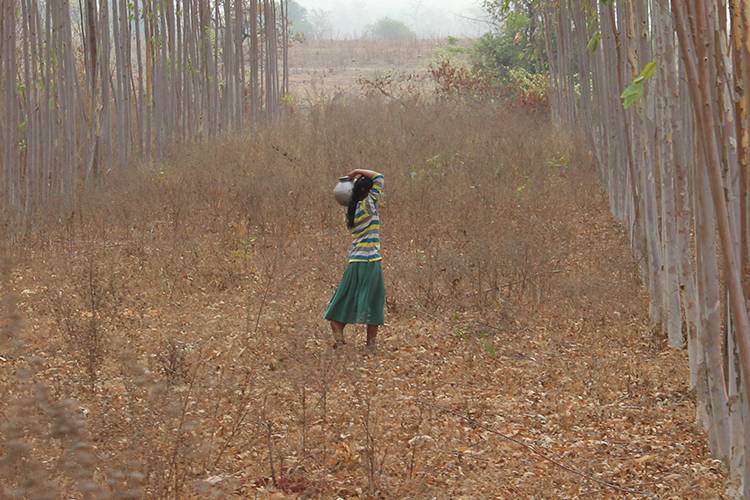Environmental Policy
The impact we have on the environment as a business, is an important consideration for us. The products we create are largely based on natural, sustainable and recycled materials made through a handmade process. We gather the waste leftover from other industries including cotton from discarded t-shirts, leather, metals and glass as well as recycled saris. Recycling allows us to create new and beautiful products with less impact on our environment.
Beyond our product collections, there are other areas of the business that contribute to our environmental footprint. We face a number of challenges and areas in which we need to improve, as a result we are constantly learning, evolving and improving. Our head office has a policy of zero waste to landfill; we work with a local dedicated company to accomplish this.
Packaging & Delivery
Shipping
We regularly reevaluate our processes for shipping and delivery. One of our greatest challenges lies in the origins of many of our products. Our collections travel from different corners of the world including India, Indonesia and Vietnam. As a policy we ensure we sea freight and do not use air freight. Additionally, we have a full consolidation process to ensure that every container has maximum space utilisation.
Packaging
A significant area for constant improvement is packaging. Many of our collections are made from recycled glass, ceramics and other fragile materials and we face a constant challenge to ensure the pieces are delivered safely and in one piece.
Some of the challenges we face include:
- Our products need to be protected against heavy monsoon rains, extreme heat and rough overland conditions from source to port.
- We know that a glass lantern for example, can face a multitude of different transportation including long journeys across bumpy roads from rural areas to major cities; setting sail for our UK warehouse and eventually arriving with our customers.
- The amount of packaging material needs protect against the risk of the product arriving broken. We know that if the product is damaged and needs replacing, it will have a far larger impact on the environment.
- Once our collections have arrived at our warehouse, we then face the challenge of delivering these to our customers without using excess materials.
Finding Solutions
We are constantly reviewing and improving our packaging methods.
Our deliveries from our UK Warehouse to you:
- Since 2019 all plastic void fill (air filled bags and bubble wrap) has been removed from outbound deliveries to customers
- We have replaced our small boxes with recyclable paper mail bags. This has reduced the amount of void space and reduced the amount of cardboard used in our deliveries
- Redesigning our retail boxes has reduced our use of cardboard by 4 tonnes per year.
- We use recycled corrugated cardboard for outbound delivery cartons. From our suppliers to nkuku:
- We are working with our suppliers to develop more eco-friendly ways of wrapping and protecting our items, including new recycled and recyclable materials. Many of these are not readily available in the countries we work with, but we are carrying out our own research and working with our suppliers to find alternatives. We are committed to making significant improvements. Since 2019 we have reduced plastic in our packaging by 85%
- Where possible we reuse all the original boxes and packaging for outbound trade deliveries
- We do not repackage products in the UK and work with packaging materials that are locally available at the source of manufacture.
- Ongoing improvements include:
- Replacing bubble wrap with corrugated paper
- Ongoing drive to remove all polystyrene from use in nkuku packaging. This has reduced plastics used in packaging by 85%.
- We will continue to update on progress made in the packaging of our products.
This research is ongoing.


